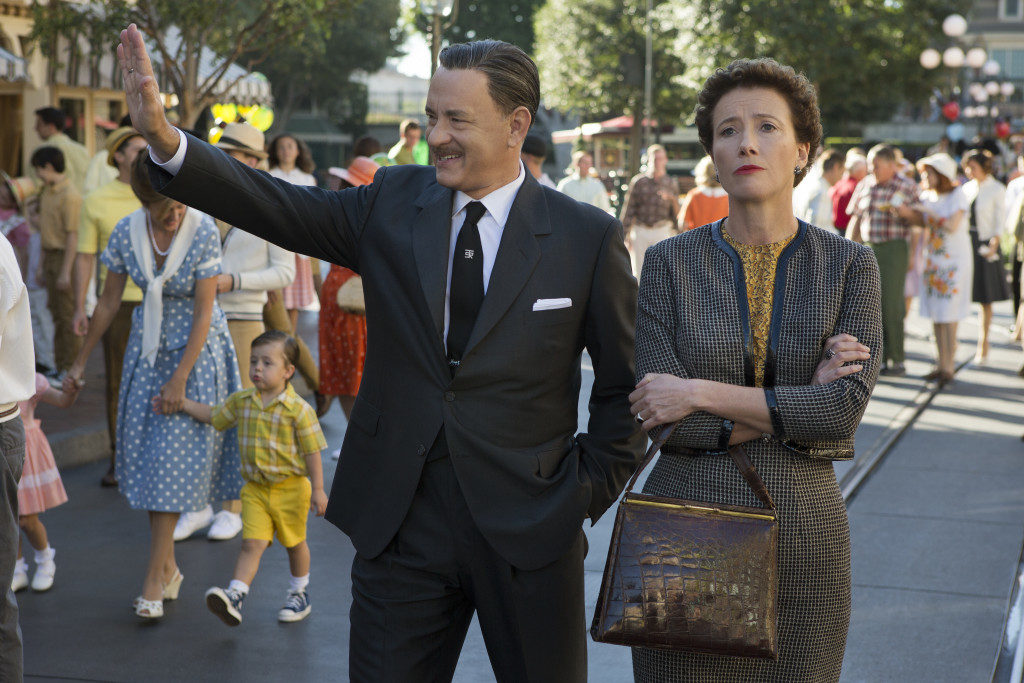Hollywood knows that the shortest shortcut to a box office success is a trip to the bookshop. Since its earliest days, it has mined the pages of successful authors for their celebrity appeal and ready-made audiences. The latest incarnation of this age-old technique has been Disney’s seemingly bottomless interest in Marvel Comics. But the method is not without its dangers.
In 1924, director Erich von Stroheim’s literal adaptation of the acclaimed novel McTeague ran for more than nine hours. When the producers finally managed to cut it down to two hours, the result was so incoherent that it did more to empty cinemas than fill them. The lesson? If you’re going to successfully move from one medium to another, you need to be armed with a wise red pen. Saving Mr. Banks, a favourite for 2013’s Best Film, is dedicated to making that very point.
Saving Mr. Banks is the story of the struggle between Walt Disney and author Pamela Travers to bring her iconic nanny Mary Poppins to the big screen. Tom Hanks provides a folksy Disney, his performance marking the first portrayal of this legendary children’s entertainer in any film. But the story is dominated by the fractious yet sympathetic “Mrs Travers!” (played by Emma Thompson). The author emerges as a prim and proper curmudgeon who is determined not to let a money-making cartoonist ruin her creation.
There’s more at stake here than artistic licence. Delving into Travers’Australian upbringing helps those watching Saving Mr Banks realise that her book is built on the bones of the author’s own sad childhood. Her maxims are the hard-won lessons that emerged from person experience. Is it any wonder that, in a film that will move you to tears more times than I care to confess, the biggest laughs of Saving Mr Banks come from scriptwriters who can’t understand why Mary Poppins would have a problem with animated penguins?
Another confession – as a scriptwriter, I’m very familiar with pains associated with the adaptation. Some of the brightest and darkest moments of my life have revolved around trying to help creatives jump to a different medium. I understood completely when Travers almost wept that Mary Poppins deserved better treatment. Hanks’ Disney does too. “I’ve fought the battle from her side,” he says, reflecting on early attempts to buy his famous Mickey. “The mouse is family.”
The trouble with translation is that the scriptwriter has to thoroughly understand the key idea the author is trying to communicate. When you do, you can drop 90 per cent of the text and still end up with a winner. When you don’t, Aragorn ends up with a girlfriend.
Saving Mr Banks suggests Poppins was actually a reflection of the saviour that Travers’ own alcoholic dad needed — and the novel’s father character Mr Banks was written for him. It’s no wonder that a ‘spoonful of sugar’ didn’t help the medicine go down.
The same error is sadly often made when the Bible passes through Hollywood. If you don’t understand the author’s intention, you can’t get the translation right. Possibly the most significant criticism of The Passion Of The Christ was that, for all its disturbing accuracy, it made Jesus’ physical pain the sum of his sufferings.
But the Bible is clear that it was God’s turning away from His son that cost him the most, and paid for our salvation. It’s no wonder Christians have reacted so strongly to ‘Christian’ films – as though someone were misrepresenting their family.
Misunderstanding Mary Poppins is minor by comparison.
Get God wrong and you’ll never get His story right.
Mark Hadley is a writer and producer. Click here to visit Mark’s site.













